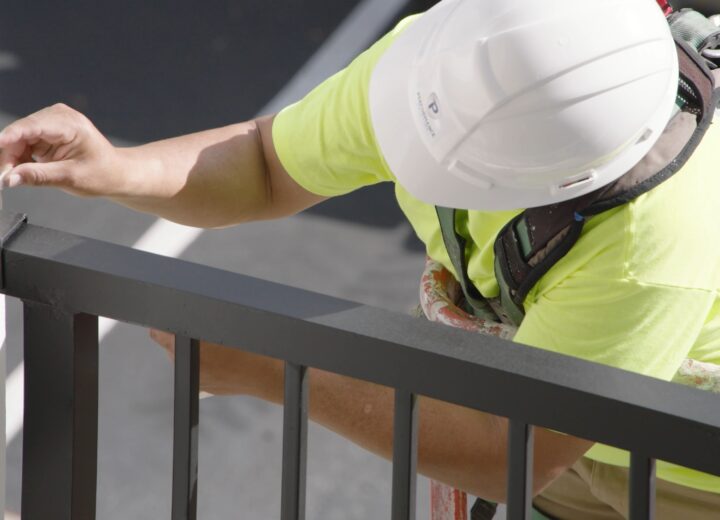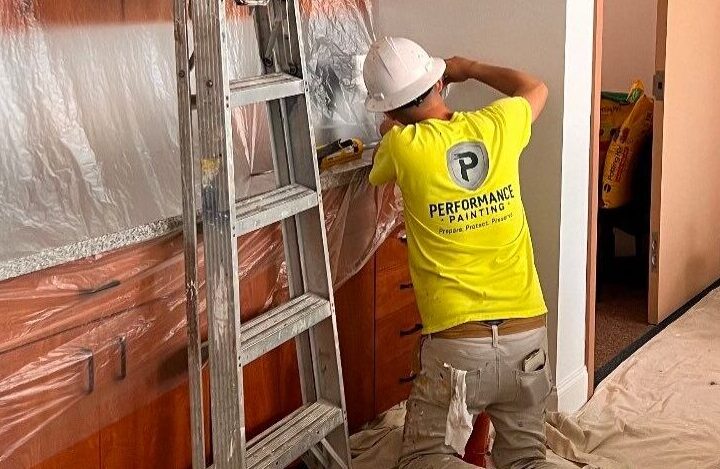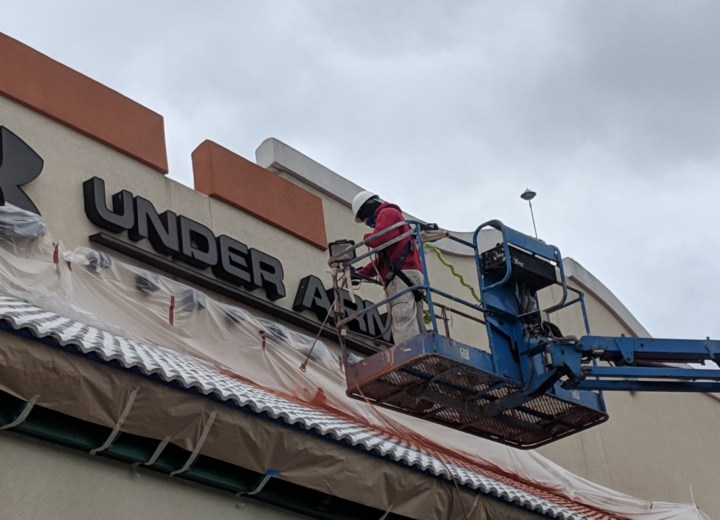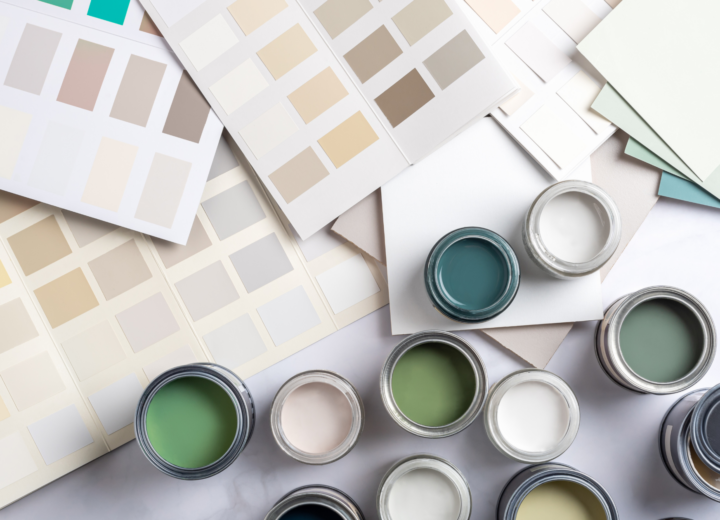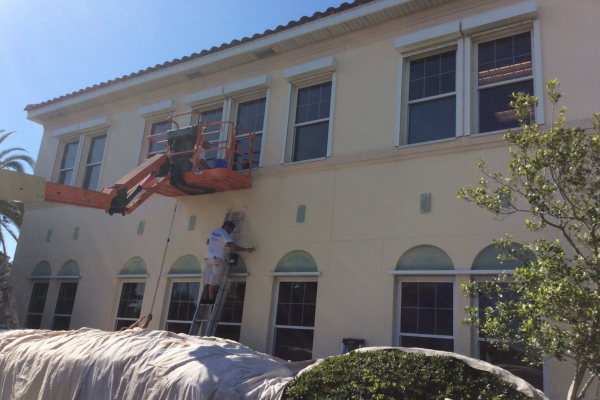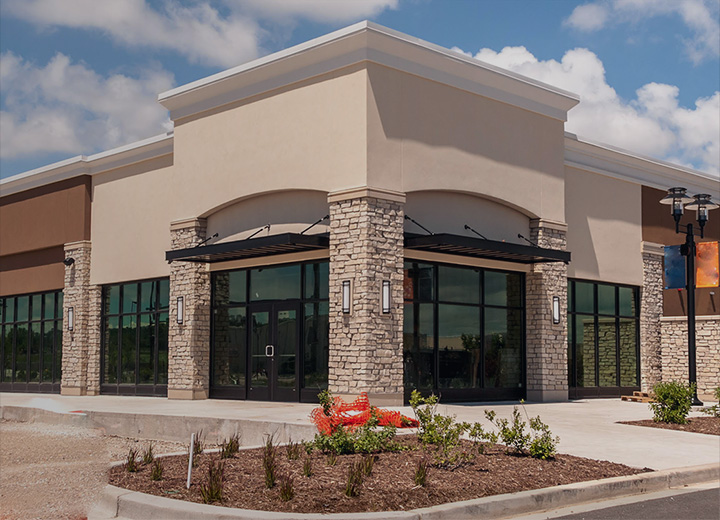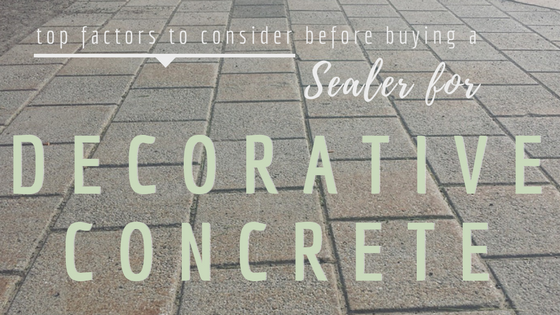
Decorative concrete has always been a favorite flooring option for restaurants, retail stores, offices, showrooms, car dealerships, schools, hotels, medical facilities and even industrial buildings in Florida.
The reason? Compared to other floor finishes, concrete floors offer a wider range of benefits. Furthermore, when the right sealer for decorative concrete is applied by experienced professionals, it can significantly prolong the life of a concrete floor system, even under extreme environmental and service conditions.
To help you make the most bang for the buck, here’s a brief overview of the most important factors the owner or manager of a commercial facility in Florida should consider before buying a sealer for decorative concrete.
Types of Sealers
The sealers available nowadays for concrete floors are divided into four distinct categories:
- Acrylics, which are used not only to preserve but also to enhance the appearance of decorative concrete. Because acrylic concrete sealers dry faster than other products, they’re more appropriate for commercial projects with tight deadlines.
- Urethanes and polyurethanes, which have been specifically designed for high-traffic areas. Since aliphatic polyurethanes have superior resistance to UV radiation, heat, water damage, spills, discoloration and abrasion, they deliver one of the best options for the concrete floors of commercial buildings in Florida.
- Epoxies, which can also handle the heavy traffic that characterize most commercial environments. Unlike other sealers, which can be used in both indoor and outdoor projects, epoxies are generally limited to interior applications.
- Penetrating sealers, which are more suitable for exterior concrete, especially when a matte finish is desired.
Compatibility
To avoid potential threats to the structural and visual integrity of a concrete floor, such as lack of adhesion that might lead to bubbles and colors bleeding in the sealer, the compatibility between the decorative surface treatment and the sealer must be considered.
But before selecting a certain type of sealer for decorative concrete, the exposure conditions should also be taken into account.
Since the sealer acts as a sacrificial layer, it’s advisable to choose a product that can protect your floor against daily abuse, while reducing the need for maintenance.
In a commercial building in Florida, for instance, you need a sealer that can:
- withstand the wear and tear associated with heavy traffic;
- prevent moisture and water penetration in the concrete floor;
- provide adequate protection against specific stressors, including UV radiation, high temperatures, dirt, grease stains, harsh chemicals, abrasion, etc.
If you’re unsure about which sealer is best, you can always consult with experienced commercial painting contractors who are able to recommend the most suitable products for your commercial flooring project.
In Tampa and Jacksonville, FL, our commercial painters typically use water-repellent sealers that are also breathable, so any moisture present in the concrete slab can escape into the atmosphere.
Volatile Organic Compounds (VOCs)
For indoor applications, commercial paint contractors recommend water-based sealers instead of solvent-based products.
Unlike a solvent-based sealer, which emits toxic chemicals that are potentially dangerous to human health, high-quality water-based products have lower levels of VOCs as well as an excellent all-round performance profile.
Maintenance
When it comes to sealers for decorative concrete, manufacturers have their own maintenance recommendations.
Although the frequency of maintenance activities depends on the manufacturers’ instructions and exposure conditions, a good rule of thumb in a commercial building is to inspect the floors every six months and reapply a coat of sealer for decorative concrete once a year.
If you want to get a fresh, clean, updated floor that can transform your entire commercial facility, please contact Performance Painting Contractors for a free, no-obligation estimate.

